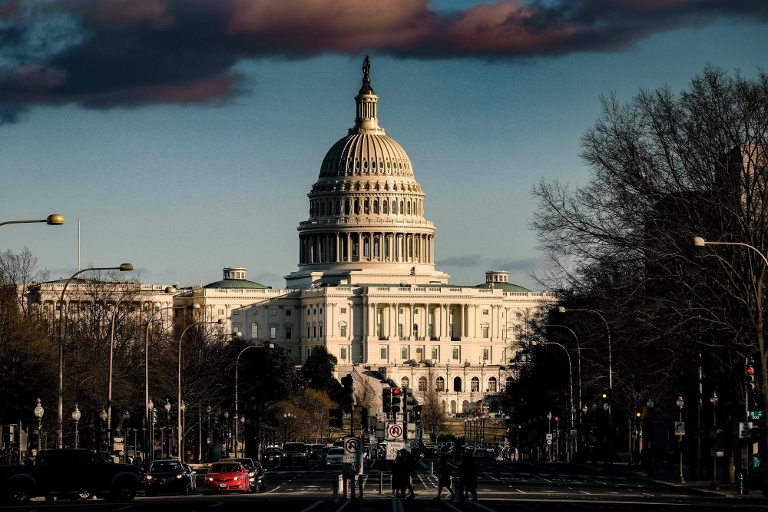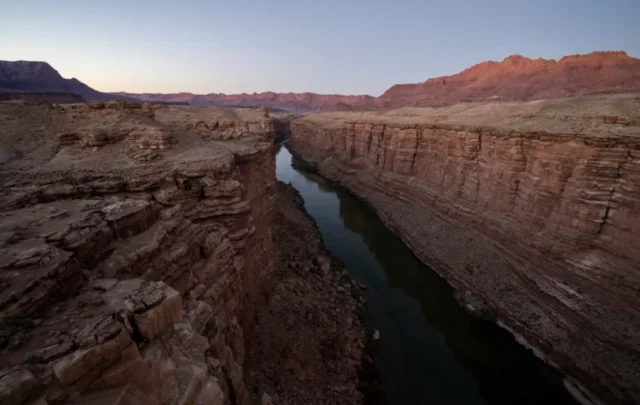Editor’s Note: This is a free version of the newsletter prepared for clients of the JBS Group.
Energy and environment in the time of the coronavirus
It’s hardly a surprise that the coronavirus pandemic is controlling politics up and down Pennsylvania from Capitol Hill to the White House. The president assumed a more somber tone during the week, although he continued to make misstatements about the pandemic and what the government was doing about it. For example, a claim he made about a malaria drug offering a cure to the coronavirus was later “clarified” by medical staff as Trump’s being “hopeful.”
Not a connection that jumps immediately to mind, the pandemic is having significant energy and environmental implications. The global lockdown has reduced air pollution as industries stand idle. One study estimates that two months of reduced pollution levels in China have saved 77,000 lives.
The Guardian reported that Venice’s hundreds of canals had been emptied of speeding motorboat taxis, transport, and tourist boats. The chugging Vaporetto water buses now run on a reduced timetable. Even most of the gondolas are moored.
The clarity of the water has improved dramatically. Cormorants have returned to dive for fish they can now see. At the Piazzale Roma Vaporetto stop, ducks have even made a nest. Someone has put up a sign saying, ”Don’t tread on the duck eggs.”
Almost as sad as the outbreak of the coronavirus itself, is it having taken a pandemic to give us a glimpse of what a sustainable environment might look like and what we’ve been doing to it with our energy choices and unbridled tourism. I’m not suggesting that the pandemic is somehow good for us or that the lives saved and those lost should be considered awash. Clear skies and canals, however, should give us pause.
The energy and tourism industries are just two of many hoping to be included in one or another of the economic stimulus packages being debated in Congress. Travel industry executives visited the White House on March 17th with a dire warning on the fallout from the coronavirus pandemic. Half of all hotels in the United States could close by year’s end and put four million Americans out of work without a massive bailout from Washington.
Hotel and tourism CEOs are pleading for $150 billion in direct grants for hotels and their suppliers “within days,” and an additional $100 billion for other tourism businesses such as attractions, recreation, retail and rental cars, dwarfing roughly $50 billion requested by air-lines in a combination of tax relief, federal grants, and loans. (McClatchy)
According to POLITICO, green groups and Democratic lawmakers want to insert financial incentives and new spending for green programs in Congress’ economic recovery package. The push is focused on clean energy tax credits, money for electric-vehicle charging stations and manufacturing, spending for climate-resilient infrastructure, and boosts to existing programs such as energy efficiency and home weatherization.
Congressional offices and environmental organizations stressed that conversations on Capitol Hill are rapidly evolving, and it’s unclear whether leadership in either chamber is taking those recommendations on board during the rushed negotiations. The so-called phase-three bill released by Senate Majority Leader Mitch McConnell on Thursday did not appear to include any measures to boost clean energy.
Several Democratic lawmakers have sought policy ideas from a number of progressive groups closely linked to the Green New Deal. Officials from the offices of Rep. Alexandria Ocasio-Cortez (D-N.Y.) and Sens. Elizabeth Warren (D-Mass.), Ed Markey (D-Mass.), Sheldon Whitehouse (D-R.I.) and Jeff Merkley (D-Ore.) have been in touch with advocates, such as think tank Data for Progress and youth-led environmental advocacy group Sunrise Movement.
As reported in S&P Global, coal producers could be particularly vulnerable if reduced economic activity from a global recession squeezes electricity or steel demand. The rapidly contracting sector was already facing a rough 2020 due to weakened export demand, unfavorable economics in domestic power markets, and growing pressure from sustainability-focused investors.
It will be hard for the administration to find a way to help the coal industry without inviting threats from Democrats to stall any legislation that might serve as a vehicle. One area of agreement—although for very different reasons—between the environmental community and conservatives who advocate on tax policy is the leasing of federal lands for energy exploration and extraction.
POLITICO reports that Conservatives for Responsible Stewardship and Taxpayers for Common Sense (CRS) want the Trump administration to suspend all upcoming lease sales on public lands for the remainder of the year, amid the coronavirus outbreak and depressed oil prices. The groups argue that continuing to hold the sales would make it unlikely taxpayers would get a fair return. “Leasing vast swaths of public land in the midst of an oil glut and collapsing market is nothing short of fiscal lunacy,” said CRS President David Jenkins in a statement.
Also asking the government to suspend leasing activities are more than 90 conservation groups who wrote to Interior Secretary David Bernhardt to urge him to suspend lease sales, major policy changes, and public comment periods for the immediate future.
One sector not making it into the stimulus is mass transit. Ridership has dropped off steeply because of the virus, but advocates say the industry’s survival is crucial to fighting climate change. The fate of the airlines in all of the negotiations is still being debated, as is that of auto manufacturers and other industries hard hit by the global lockdown.
Oil and the Strategic Petroleum Reserve (SPR)—Tanks A lot
Texas regulators are considering cutting oil production for the first time in decades, after several oil executives requested relief amid the downturn in the oil industry, The Wall Street Journal reports, citing people familiar with the matter. The executives reportedly reached out to the Texas Railroad Commission amid the price war between Saudi Arabia and Russia, and as the coronavirus continues to hit the global economy.
It’s unclear whether regulators will decide to curtail production in the No. 1 oil-producing state in the US, the WSJ reports. People familiar with the situation said staffers are examining what would be required.
With oil super cheap, Trump is looking to fill the nation’s strategic petroleum reserve (SPR). Oil is cheap because of the pandemic forced industrial lockdowns and the price war between Russia and Saudi Arabia.
Russian President Vladimir Putin will refuse to submit to what the Kremlin sees as oil blackmail from Saudi Arabia, signaling the price war that’s roiling global energy markets will continue.
The unprecedented clash between the two giant exporters — and former OPEC+ allies — threatens to push the price of a barrel below $20. Moscow won’t be the first to blink and seek a truce, said people familiar with the government’s position.
Putin’s government has spent years building reserves for this kind of crisis. While Russia didn’t expect the Saudis to trigger a price war, the people said, the Kremlin so far is confident that it can hold out longer than Riyadh. (Bloomberg)
Trump has called the spat “devastating to Russia.” He’s indicated he’ll become involved at an appropriate time. What in Trumpian terms is “appropriate?” It’s hard to say, although it’s safe to assume it will be sometime after he sees if he can get away with big petro-purchases to fill US reserves—and, possibly, then some.
The Washington Examiner is now giving some credibility to what it called an eyebrow-raising statement by Treasury Secretary Mnuchin that the US government should “go out and buy $10 billion or $20 billion” of oil to “fill up the reserves.” It’s an amount that would fill the existing SPR tanks five times over.
On Thursday, March 19th, Energy Secretary Dan Brouillette said that he would ask Congress for $3 billion to fulfill President Trump’s order to buy low-priced oil to restock the SPR. The funds would be more than enough to cover the 77 million barrels open capacity. Should the administration find the cash to buy at the $10-$20 billion levels, it would also need to find tanks to rent.
“I don’t think anyone should discount when Mnuchin said,” said Kevin Book, managing director of the consulting group ClearView Energy. “Mnuchin is not a guy who misses details. Our interpretation was he was proposing something much bigger.”
Where Trump would find the money to buy oil at any price is the issue. He’ll need to get Congress to write a check. Perhaps more justifiable than propping the coal industry, moderate and progressive Democrats are going to think more than twice before voting for the appropriations.
Last call. Amending Biden’s climate plan with elements of the GND, e.g., banning fracking, could gain the active support of progressive environmentalists. As oil drops below $30 a barrel, a fracking ban may no longer be of much consequence to companies otherwise going bankrupt.
In 2016 Sanders led a revolutionary force mostly of his making. In 2020, the progressive movement is being marshaled by a new generation of leaders and organizations. (Civil Notion)
When does a pandemic beat an existential threat? Nicholas Stern, one of the most prominent global experts on the climate crisis, has urged Boris Johnson to resist calls to postpone vital United Nations climate talks this year, despite the coronavirus outbreak. Ministers and officials have privately discussed the possibility of postponing the COP26 talks scheduled for Glasgow this November, but no decision has yet been taken. Travel bans and the shutdown imposed in many countries because of the virus have resulted in canceled meetings and officials working remotely. (Grist)
Please, sir—can we have more? Ardent climate change voters thought Campaign 2020 was going to be their election. Now, some climate-focused voters said they are struggling with their feelings as former Vice President Joseph R. Biden Jr. appears certain to become the Democratic nominee. In interviews with two dozen activists and voters who consider the planet’s warming their top issue, almost all said they worried that Mr. Biden has not made the issue a sufficient priority or been specific enough about his plans. (New York Times)
Take it off the streets. The coronavirus outbreak has prompted climate activists to abandon public demonstrations, one of their most powerful tools for raising public awareness and shift to online protests. For example, organizers of the Fridays for Future protests are advising people to stay off the streets and post photos and messages on social media in a wave of digital strikes. (New York Times)
Don’t tree’d on me. A campaign to plant one trillion trees made headlines. Experts say it’s not a panacea. Like other initiatives to tackle climate change, planting trees requires some forethought. Recent news coverage of the trillion tree campaign points to several things people should be thinking about before digging and planting. (Yale Climate Connections)






